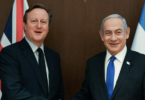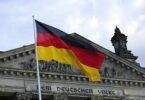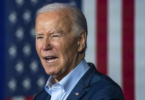Monitoring Desk
LONDON: British Prime Minister Boris Johnson said on Friday he was remaining in isolation with mild symptoms of the coronavirus, including a high temperature, seven days after he first tested positive. “Although I’m feeling better and I’ve done my seven days of isolation, alas I still have one of the symptoms, a minor symptom, I still have a temperature,” Johnson said in a video message posted on Twitter.
“So in accordance with government advice I must continue my self isolation until that symptom itself goes,” Johnson said. Johnson announced a week ago that he had tested positive and would be isolating in Downing Street. In his address, the prime minister told Britons that they needed to stick to the rules on staying at home unless it was essential to go out, ahead of a weekend when good weather is forecast.
“I just urge you not to do that (go out). Please, please stick with the guidance now,” Johnson said. “This country has made a huge effort, a huge sacrifice, done absolutely brilliantly well in delaying the spread of the virus. “Let’s stick with it now.” When asked earlier on Friday if Johnson would be out of isolation on Friday, his health minister, Matt Hancock, said: “I’ve absolutely no idea but what I do know is he’s still working.” Hancock also tested positive for the coronavirus last week at about the same time as Johnson, but he has since left isolation and is working as scheduled.
Meanwhile, the peak of the United Kingdom’s coronavirus outbreak will be slightly sooner than previously thought and will come in the next few weeks, Health Secretary Matt Hancock said on Friday. “The modelling suggests that that peak will be slightly sooner than previous, in the next few weeks but it is very, very sensitive to how many people follow the social distancing guidelines,” Hancock told BBC radio. The deadliest peak of Britain’s coronavirus outbreak could be on Easter Sunday, Health Secretary Matt Hancock said on Friday.
When asked about reports that the death rate could peak on April 12, Hancock told Sky: “I defer to the scientists on the exact predictions, I’m not going to steer you away from that. That is one perfectly possible outcome.” Reuters reported on Thursday that the British government’s worst case scenario envisaged the COVID-19 death toll of 50,000 if self-isolation was not fully adhered to and that the worst day for deaths was projected to be April 12. Meanwhile, Britain’s Labour Party will elect a new leader on Saturday, with Brexit policy chief Keir Starmer the frontrunner to take over a deeply divided party that, under veteran socialist Jeremy Corbyn, suffered a crushing defeat in a December election.
The finale of the leadership contest, under way since Corbyn announced his resignation after the election, has been overshadowed by Britain’s growing coronavirus outbreak, all but silencing the hopefuls’ campaigns. But for many in Labour, Saturday’s election will be a chance for the party to start afresh and move away from years of rows over everything from how to approach Britain’s departure from the European Union and accusations of anti-Semitism among members, to the party’s turn to the left under Corbyn. It may not be easy. Prime Minister Boris Johnson’s Conservatives have occupied much of traditional Labour territory, with the coronavirus crisis prompting the ruling party to turn on the spending taps and end economic austerity.
“This election has been long – and it’s fair to say that it hasn’t ended in the way that any of us expected,” Starmer told supporters on Thursday in an email run under his slogan “another future is possible”. “With the campaigns that all of the candidates have run, I honestly believe that we have come out of the other end of this contest as a better party: more united and ready to build another future.” Starmer, who has been careful to try to carry Corbyn’s supporters while also keeping more centrist Labour members on board, leads in the polls, ahead of Rebecca Long-Bailey, an ally of Corbyn, and third-placed Lisa Nandy.
Labour’s more than 580,000 members, affiliate members through trade unions or socialist societies and people who paid 25 pounds to be registered supporters have all been eligible to vote in the election. The new leader will be announced on Saturday morning in a statement, rather than at a live event because of coronavirus, with the three hopefuls having had to record a victory speech ahead of time before knowing the result. Starmer, a former director of public prosecutions who was knighted in 2014 for services to law and criminal justice, has promised not to “over steer” the party back to the centre, but has also put forward a more pro-EU stance, suggesting he would bring back free movement for the bloc’s citizens. But many who backed Corbyn say they fear Starmer will come under pressure to dispense with the former leader’s left-wing agenda and try to rebuild a membership base from the centre, changing the party back to something closer to the one led by Tony Blair, who was prime minister from 1997 to 2007. (Reuters)






